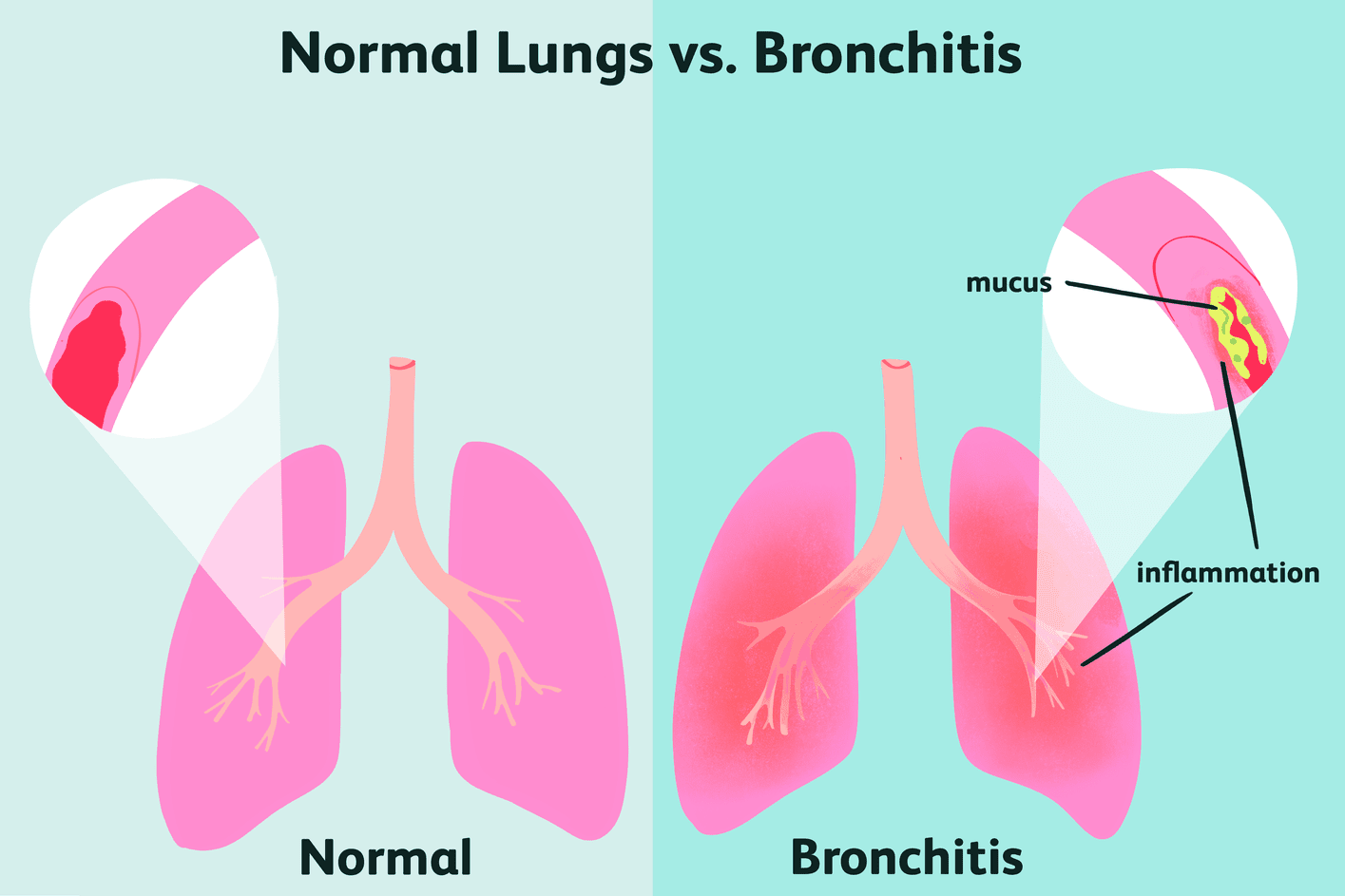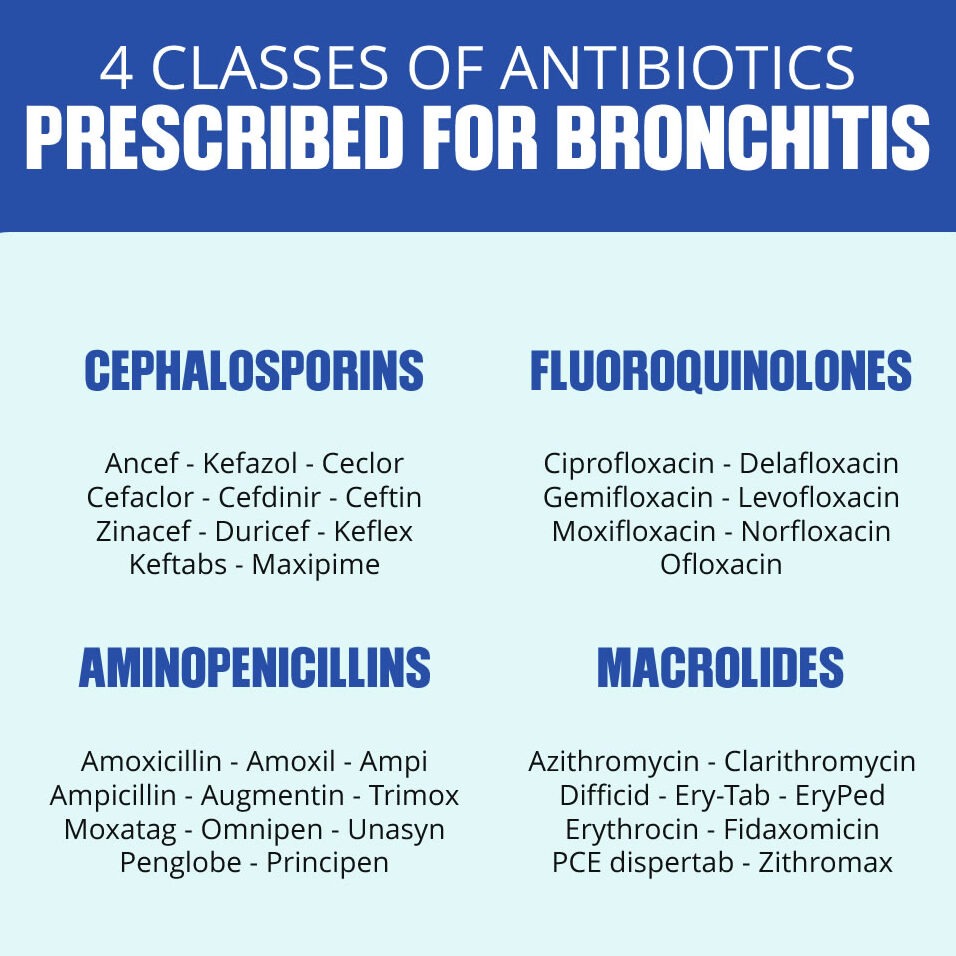Introduction
The inflammation of the passageways leading to the lungs is called bronchitis. You cough because irritation causes the air passages (trachea and bronchi) to expand and fill with mucus. Your cough may persist for a few days or weeks. That is the primary sign of bronchitis. The most frequent reason for acute bronchitis is viruses. Both chronic as well as acute bronchitis can be brought on by smoke and other irritants.
Acute Bronchitis
Usually brought on by a viral infection, acute bronchitis resolves on their own in a few weeks. The majority of people with acute bronchitis are not required to see a doctor.
Chronic Bronchitis
If you have a mucus-producing cough on the majority of every month for three months of the year, you have chronic bronchitis. For a minimum of two years, this continues. You might develop chronic obstructive pulmonary disease, also known as (COPD) if you have chronic bronchitis. Find out from your healthcare practitioner if a COPD test is necessary for you.
Sign And Symptoms
You could have chilly symptoms if you’re suffering from acute bronchitis, including:
- Cough
- Fatigue
- A sore throat
- Chills and a little fever
- Body aches and a slight headache
- Discomfort in the chest breathing difficulties and wheeze
- Mucus (sputum) production: This substance can be apparent white, yellowish-gray, green, or, very infrequently, stained with blood.
- Although these symptoms normally go away in a week or so, you can have a persistent cough that lasts for many weeks.

Signs and symptoms of chronic bronchitis can include:
- Cough
- Fatigue
- Sore chest
- Breathlessness
- Mucus production
Diagnosis
During a physical examination, a physician will use a stethoscope to search for any strange sounds coming from the lungs. They might also question someone regarding:
- Their medical history
- Being exposed to smoke from others, airborne particles, or air pollution
- Any recent episodes of the flu or cold; whether they smoke; and their symptoms, particularly the cough
- The physician might additionally collect a sputum sample for a laboratory test to look for bacteria or viruses
- Measure the patient’s blood oxygen content
- Suggest a chest X-ray
- Prescribe a bronchial lung function test
- Perform blood tests
Treatment
Don’t fret if your physician simply advises rest and plenty of fluids. An episode of acute bronchitis frequently will pass away on its own. Letting your body relax and drinking enough of water may help it leave more quickly.
Drugs
Your doctor may prescribe any or all of the following medications to treat your bronchitis if necessary, in order to relieve symptoms:
The Nonprescription Analgesics
Aspirin, acetaminophen, and naproxen are examples of medications that lower fever and bodily aches.

Cough Suppressants
These are only recommended by your doctor if you are no longer bringing up mucus. If so, the body is still cleansing the passages for air.
Antiviral Drugs
If your infection is being brought on by the flu, your doctor may recommend this. Taken shortly after becoming ill, it might hasten healing and minimize symptoms.
Bronchodilators
These drugs aid in opening your airways by calming the muscles that around them. Both long-acting and short-acting varieties are available. They can be inhaled, nebulized, or taken as tablets.
Bronchitis Inhalers
The majority of bronchodilators are inhaled. Corticosteroids are a component in certain inhalers that help lessen lung edema. If your infection is chronic or you also have asthma or allergies, which can both obstruct your airways, your doctor may prescribe an inhaler.
Home Cures For Bronchitis
Apart from obtaining adequate sleep, you could consider:
- Staying in a moist bathroom or sleeping close to a humidifier can facilitate easier breathing
- Getting enough of fluids will help to relieve chest congestion
- To ease your throat, try some cough pills or honey-infused tea
- Using a neti pot or nasal saline spray to clear your sinuses of mucus
How to Manage Chronic Bronchitis
The most crucial thing to do if you’re suffering from chronic infection is to adjust your lifestyle. This includes stopping smoking, staying away from second hand smoke, and exercising frequently. In addition to bronchodilator medicine and influenza and pneumonia vaccinations, your doctor might recommend:
Oxygen Treatment
You may receive additional oxygen continuously or only as required.

Rehabilitation of The Lungs
The goal of this therapy is to help those who have breathing issues feel better. Breathing exercises will be taught to you. Nutritional advice and psychological counseling may also be part of your treatment.
An Exchange of Lungs
If other therapies haven’t been successful for your extremely serious chronic bronchitis, this might be a possibility.
Prevention
Acute or chronic bronchitis cannot always be avoided, however there are a number of factors that can lower the risk. Among them are:
- Steer clear of or give up smoking
- Enquiring about immunizations against the flu and pneumonia
- Staying away from air pollution, smoke, dust, fumes, and vapors
- Hand washing frequently helps prevent the spread of bacteria and germs
- Putting on a face mask to cover one’s mouth and nose when pollution is high

